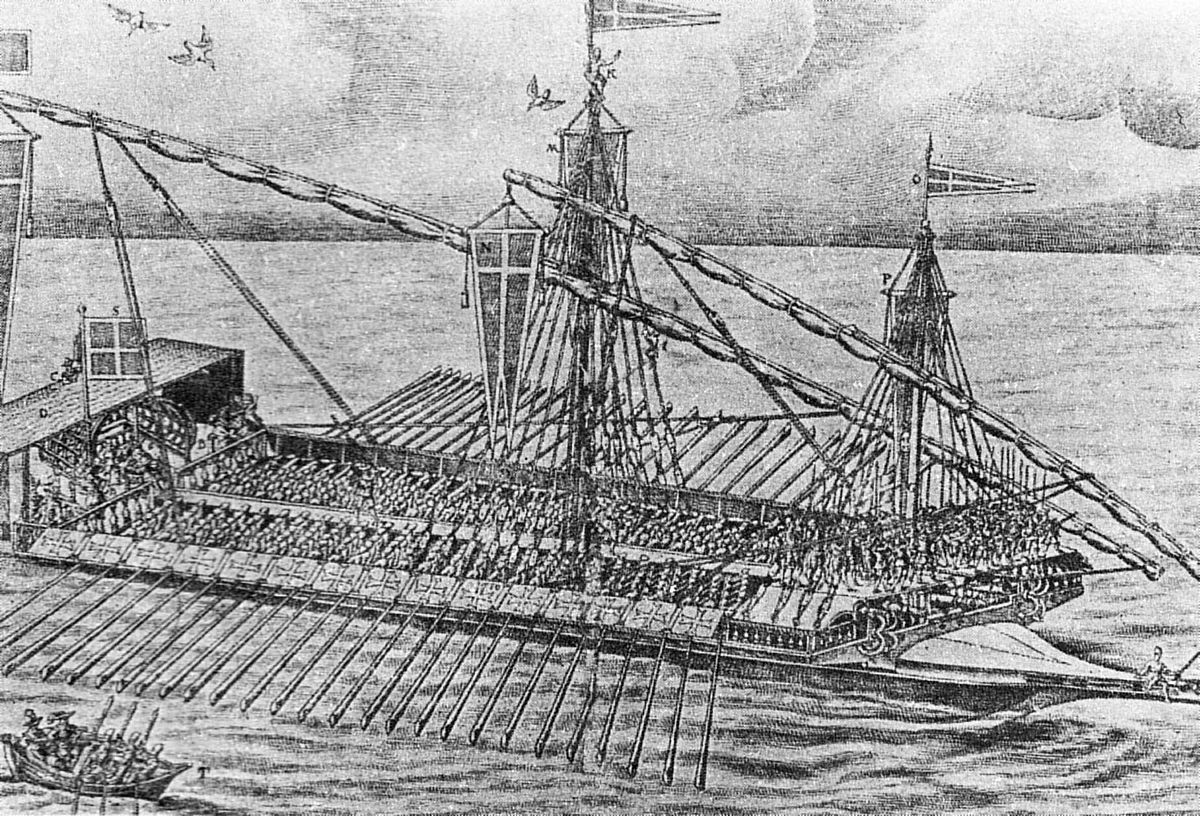
Corso
Mediterranean SeaFollowing the knights' relocation to Malta, they had found themselves devoid of their initial reason for existence: assisting and joining the crusades in the Holy Land was now impossible, for reasons of military and financial strength along with geographical position. With dwindling revenues from European sponsors no longer willing to support a costly and meaningless organization, the knights turned to policing the Mediterranean from the increased threat of piracy, most notably from the threat of the Ottoman-endorsed Barbary pirates operating from the North African coastline. Boosted towards the end of the 16th century by an air of invincibility following the successful defence of their island in 1565 and compounded by the Christian victory over the Ottoman fleet in the Battle of Lepanto in 1571, the knights set about protecting Christian merchant shipping to and from the Levant and freeing the captured Christian slaves who formed the basis of the Barbary corsairs' piratical trading and navies. This became known as the "corso".
The authorities on Malta immediately recognised the importance of corsairing to their economy and set about encouraging it, as despite their vows of poverty, the Knights were granted the ability to keep a portion of the spoglio, which was the prize money and cargo gained from a captured ship, along with the ability to fit out their own galleys with their new wealth.
The great controversy that surrounded the knights' corso was their insistence on their policy of 'vista'. This enabled the Order to stop and board all shipping suspected of carrying Turkish goods and confiscate the cargo to be re-sold at Valletta, along with the ship's crew, who were by far the most valuable commodity on the ship. Naturally many nations claimed to be victims of the knights' over-eagerness to stop and confiscate any goods remotely connected to the Turks. In an effort to regulate the growing problem, the authorities in Malta established a judicial court, the Consiglio del Mer, where captains who felt wronged could plead their case, often successfully. The practice of issuing privateering licenses and thus state endorsement, which had been in existence for a number of years, was tightly regulated as the island's government attempted to haul in the unscrupulous knights and appease the European powers and limited benefactors. Yet these efforts were not altogether successful, as the Consiglio del Mer received numerous complaints around the year 1700 of Maltese piracy in the region. Ultimately, the rampant over-indulgence in privateering in the Mediterranean was to be the knights' downfall in this particular period of their existence as they transformed from serving as the military outpost of a united Christendom to becoming another nation-state in a commercially oriented continent soon to be overtaken by the trading nations of the North Sea.
